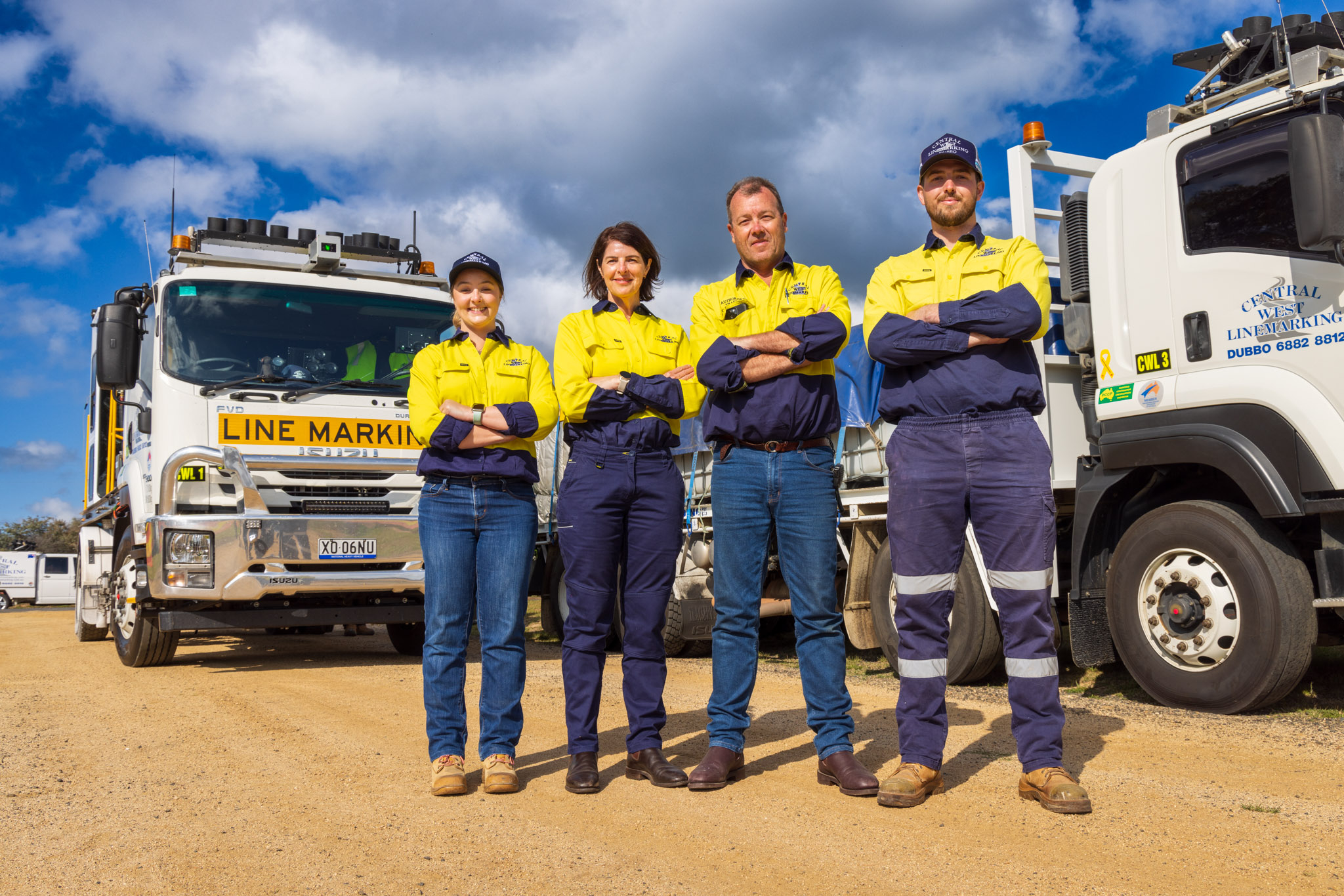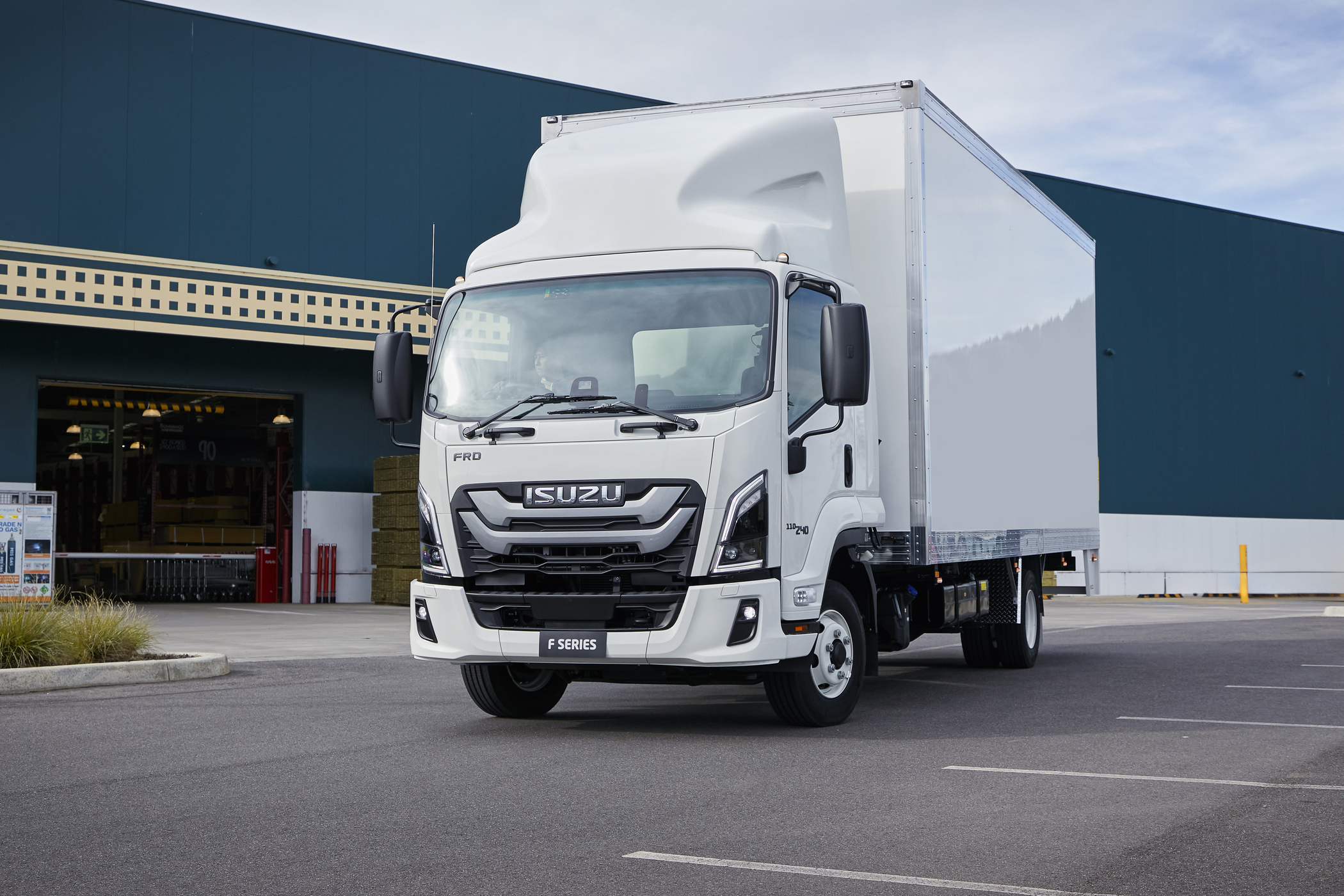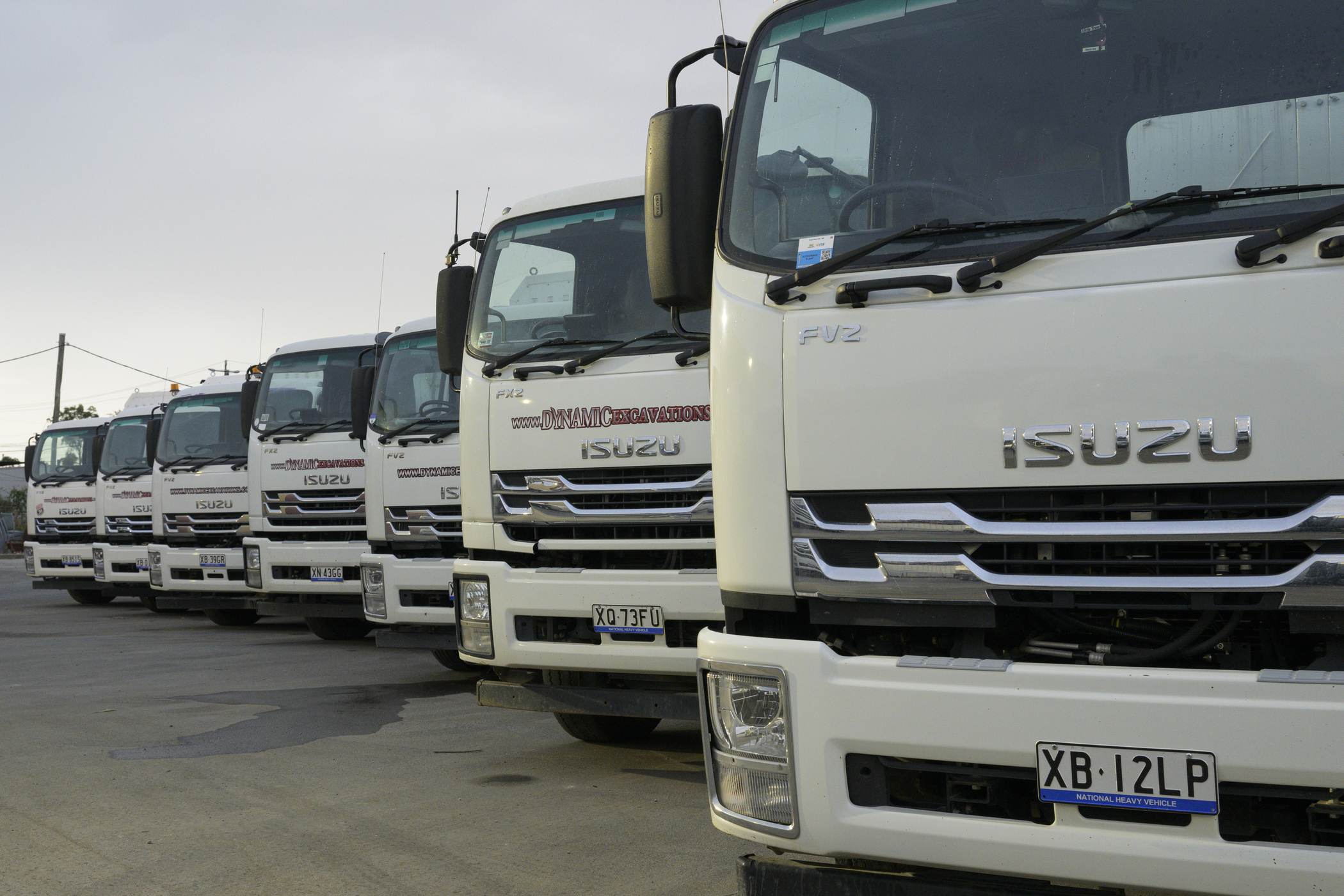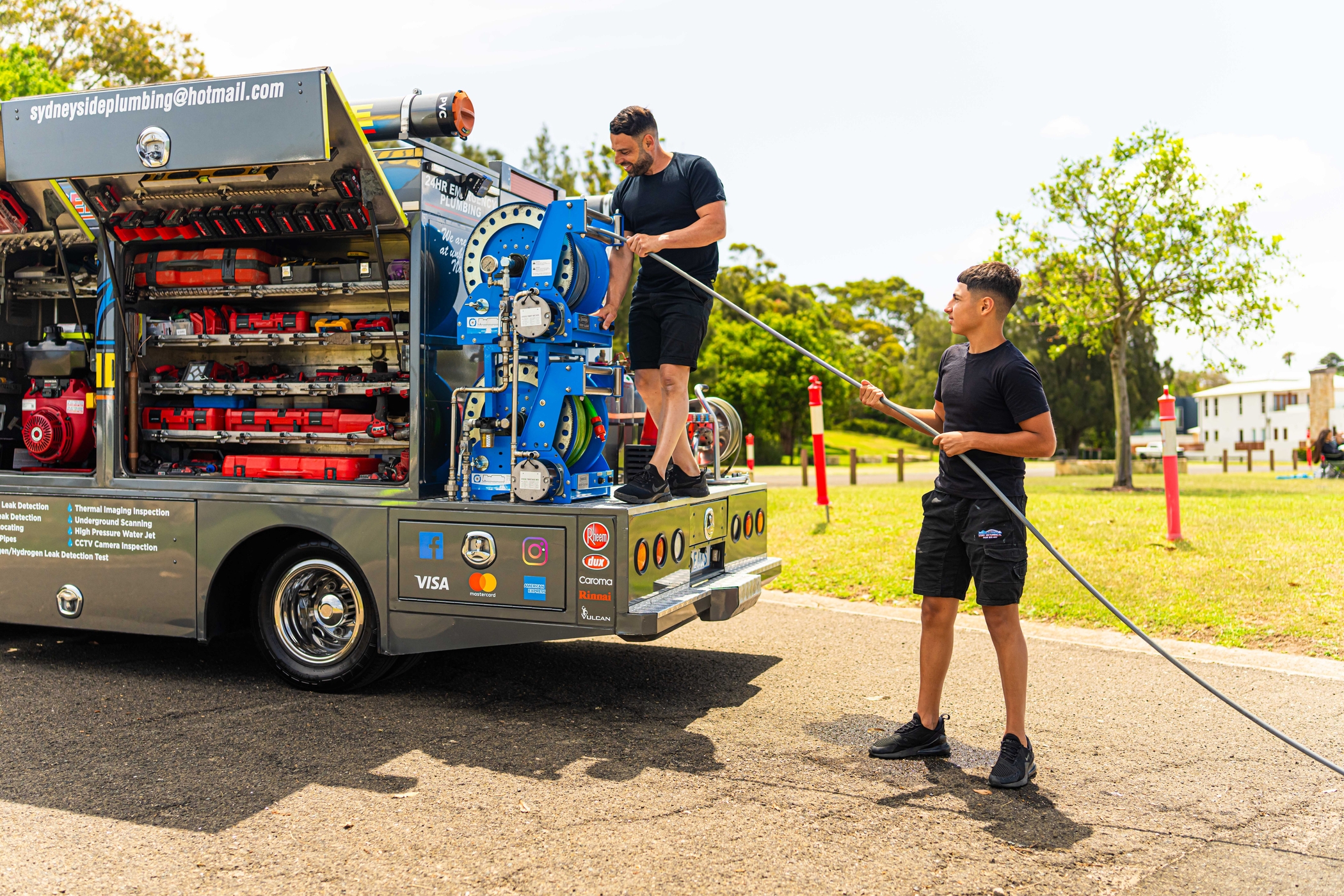Road Rules: The Lesser Known Variety

 Dangerous goods in the hood
Truckies transporting dangerous goods will be well acquainted with the Australian Dangerous Goods Code and also the extensive list of regulations specific to each state and territory.
Each state’s and territory’s laws also come with a register of roads where carriage of dangerous goods is prohibited, and other areas where it is permitted only during certain times of the day. Check each government’s website for a list or map of restricted goods routes, but see here for the Queensland Government’s rule-of-thumb guide for route planning.
There’s an especially long list of roads and tunnels in New South Wales (NSW), where dangerous goods are restricted. Also in NSW (but not in other states), vehicles carrying flammable, explosive or dangerous goods must stop between 3 and 15 metres before a railway crossing, before attempting to cross.
This NSW law includes materials like paint, lighters, batteries and barbecue gas bottles.
Dangerous goods in the hood
Truckies transporting dangerous goods will be well acquainted with the Australian Dangerous Goods Code and also the extensive list of regulations specific to each state and territory.
Each state’s and territory’s laws also come with a register of roads where carriage of dangerous goods is prohibited, and other areas where it is permitted only during certain times of the day. Check each government’s website for a list or map of restricted goods routes, but see here for the Queensland Government’s rule-of-thumb guide for route planning.
There’s an especially long list of roads and tunnels in New South Wales (NSW), where dangerous goods are restricted. Also in NSW (but not in other states), vehicles carrying flammable, explosive or dangerous goods must stop between 3 and 15 metres before a railway crossing, before attempting to cross.
This NSW law includes materials like paint, lighters, batteries and barbecue gas bottles.
 Keep those elbows inside
No part of your body can be outside a window when driving (not even if you’re a passenger), in all states of Australia unless you are giving a hand signal (note: only signals of the informative kind, turning right, slowing down or stopping).
Infringing this rule could cost you more than an arm and a leg too, with fines above $120—for an example, see Western Australia’s (WA) Road Code.
Sticking a hand or head out the window to enjoy a good breeze on the highway might seem like a nice idea, but police are not shy about enforcing the law: 112 drivers and passengers were fined in Queensland alone during 2016/2017.
Keep those elbows inside
No part of your body can be outside a window when driving (not even if you’re a passenger), in all states of Australia unless you are giving a hand signal (note: only signals of the informative kind, turning right, slowing down or stopping).
Infringing this rule could cost you more than an arm and a leg too, with fines above $120—for an example, see Western Australia’s (WA) Road Code.
Sticking a hand or head out the window to enjoy a good breeze on the highway might seem like a nice idea, but police are not shy about enforcing the law: 112 drivers and passengers were fined in Queensland alone during 2016/2017.
 Parking your truck
Parking restrictions for heavy vehicles (4.5 tonnes or more GVM) and long vehicles (7.5 metres or longer) are unified across Australia states.
In built-up areas heavy or long trucks can only park for a maximum of one hour, unless they’re picking up or dropping off goods, or a parking sign indicates otherwise.
“Built-up” areas can also apply to residential streets or any roads close to metro areas, so next time you need a rest on your journey, finding a designated rest stop for your kip can help. You can find heavy vehicle rest stop maps like the VicRoads interactive map on state road transport websites.
Roadside emergencies
If you’re passing a roadside emergency on Australia’s roads and which involves an emergency vehicle, make sure you go SLOMO—a term aptly coined by the WA Government.
WA’s new SLOMO ‘Slow Down, Move Over’ law, requires drivers to reduce speed to a maximum of 40 km/hour when passing incident response vehicles including fire authorities, ambulances, SES vehicles and traffic response units with flashing lights or a siren sounding. Failure to comply can cop you a whopping $300 fine and three demerit points in states like WA.
Similar 40 km/hour speed limits in emergency zones are also present in NSW, Victoria and the Australian Capital Territory (ACT) and is set to be introduced shortly in Tasmania. In South Australia (SA) the speed limit is even further reduced to 25km/h. In other states and territories, the laws don’t specify a speed limit, just a directive to slow down and give way to emergency vehicles.
Parking your truck
Parking restrictions for heavy vehicles (4.5 tonnes or more GVM) and long vehicles (7.5 metres or longer) are unified across Australia states.
In built-up areas heavy or long trucks can only park for a maximum of one hour, unless they’re picking up or dropping off goods, or a parking sign indicates otherwise.
“Built-up” areas can also apply to residential streets or any roads close to metro areas, so next time you need a rest on your journey, finding a designated rest stop for your kip can help. You can find heavy vehicle rest stop maps like the VicRoads interactive map on state road transport websites.
Roadside emergencies
If you’re passing a roadside emergency on Australia’s roads and which involves an emergency vehicle, make sure you go SLOMO—a term aptly coined by the WA Government.
WA’s new SLOMO ‘Slow Down, Move Over’ law, requires drivers to reduce speed to a maximum of 40 km/hour when passing incident response vehicles including fire authorities, ambulances, SES vehicles and traffic response units with flashing lights or a siren sounding. Failure to comply can cop you a whopping $300 fine and three demerit points in states like WA.
Similar 40 km/hour speed limits in emergency zones are also present in NSW, Victoria and the Australian Capital Territory (ACT) and is set to be introduced shortly in Tasmania. In South Australia (SA) the speed limit is even further reduced to 25km/h. In other states and territories, the laws don’t specify a speed limit, just a directive to slow down and give way to emergency vehicles.
 Lock the doors and windows
It might seem like a no-brainer from a safety viewpoint, but it’s actually written into the Australian Road Rules too, under the section “making a motor vehicle secure”.
In all states and territories, it’s illegal to leave your vehicle unlocked and the windows open more than two centimetres if you are over three metres away—for an example see the NSW Road Rules.
Next time you take a fuel break or pop into a restaurant along your route, make sure the doors and windows on your truck are locked up tight.
Play it safe
Whether you’re driving locally or hitting the roads interstate, it’s important to remember we have different (and obscure) rules in each state and territory. Stay out of trouble by refreshing your road knowledge and keep an eye out for updates and changes to the rules in your area.
For the latest COVID-19 information regarding border restrictions, see here.
It’s important to pay attention to the road rules that are there to keep us safe, especially as there are some unique challenges Australian road users face!
Lock the doors and windows
It might seem like a no-brainer from a safety viewpoint, but it’s actually written into the Australian Road Rules too, under the section “making a motor vehicle secure”.
In all states and territories, it’s illegal to leave your vehicle unlocked and the windows open more than two centimetres if you are over three metres away—for an example see the NSW Road Rules.
Next time you take a fuel break or pop into a restaurant along your route, make sure the doors and windows on your truck are locked up tight.
Play it safe
Whether you’re driving locally or hitting the roads interstate, it’s important to remember we have different (and obscure) rules in each state and territory. Stay out of trouble by refreshing your road knowledge and keep an eye out for updates and changes to the rules in your area.
For the latest COVID-19 information regarding border restrictions, see here.
It’s important to pay attention to the road rules that are there to keep us safe, especially as there are some unique challenges Australian road users face!



The all-new Isuzu truck range is about to arrive.
Register your interest and we'll keep you in the loop with the latest updates.
Learn More



